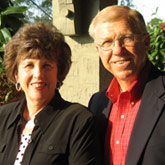Is it good to be zealous? Depends on what you are zealous for, doesn’t it? The Apostle Paul wrote, “It is fine to be zealous, provided the purpose is good...” (Galatians 4:18). What might that good purpose be? Nineteenth-century Anglican Bishop J.C. Ryle offered this description of a Christian who is zealous for a good purpose:
“Zeal in Christianity is a burning desire to please God, to do his will, and to advance his glory in the world in every possible way. This desire is so strong that when it really reigns in a person, it impels them to make any sacrifice, to go through any trouble, to deny themselves anything, to spend themselves and be spent, and even to die, if only they can please God and honor Christ.
“A zealous person in Christianity is preeminently a person of one thing. It is not enough to describe them as earnest, wholehearted, and fervent in spirit. They only see one thing, they care for one thing, they live for one thing, and that one thing is to please God.” (Quoted in Mastering Life Before It’s Too Late by Robert J. Morgan. The quote condensed and updated for modern reading.)
One area in which Christ-followers are asked to please God and demonstrate faithfulness is in their relationship to wealth — how they earn it, spend it, invest it, and give it away. Many, however, are slow to grow in this area.
Perhaps it’s a misunderstanding of all that stewardship entails. It’s not just about giving. It’s not just for the wealthy. We’re all called to practice good stewardship — at every age and income level. “Moreover, it is required of stewards that they be found faithful” (1 Corinthians 4:2). For emphasis, let me use some words from a thesaurus. Faithfulness and trustworthiness in stewards — such as we are — is not optional, discretionary, elective, or voluntary. On the contrary, in someone managing wealth, it is essential, mandatory, expected, imperative, obligatory, and indispensable. It’s good we understand this.
Or perhaps you do grasp your responsibility to be a wise steward, but you’ve not progressed as quickly as you would like because you don’t understand how. SMI is here for people like you. We want to help you grow in your understanding and application not only of stewardship principles but also of money-management and investing basics. We also want to help you “excel in this grace of giving” (2 Corinthians 8:7).
But for many, it’s neither of the above. Rather, it’s a lack of consistency in following through. You understand that you have stewardship responsibilities before God, and you know enough of the financial basics to make progress if you apply yourself. You want to do better, but good intentions (and New Year’s resolutions) aren’t always enough to produce change.
That common failing is what drew me to the My One Word approach (see this month's cover article, What Is Your One Word?). It has helped thousands bring about changes in habits and behaviors that had previously been self-defeating. As the authors say, change is possible, but focus is required.
Why not apply the My One Word principle to your financial life for the rest of the year? Your word might be one of these:
Plan, because you lack one, yet every spending and investing decision should flow from a personalized plan.
Discipline, because you have created a long-term investing plan but find you’re inconsistent in following it.
Patience, because you have a short-term mentality when a long-term time horizon is called for.
Glorify, because you want your motives for investing and acquiring wealth to be pleasing to God.
Relax, because it’s your nervousness in following the headlines that prevents you from staying the course.
Trust, because God has promised to provide “all your needs according to the riches of his glory in Christ Jesus” (Philippians 4:19).
Faithful, because you need to remember that following your plan, rather than measuring each outcome, defines success.
I encourage you to purchase and read through the My One Word book. The authors will give you food for thought on how to select your word and tips on how to keep it in front of you and stay focused. Let your one word become the lens through which you make your spending, investing, and giving decisions for the rest of 2024. Then you’ll be ready for this word:
Forget, so you can let go of past failings and move into a more promising financial future. Then you can say with Paul, “One thing I do: Forgetting what is behind and straining toward what is ahead, I press on toward the goal to win the prize for which God has called me heavenward in Christ Jesus” (Philippians 3:13-14).









